Meredith Wilson-Smith
A recent Employment Standards decision declared that yet another temporary help agency may not charge its employees for terminating their contracts –– and must pay them for their work during mandatory training. These companies call these illegal fees a cost for receiving on-the-job training and if a worker leaves their job placement early, the company tries to charge them fees to cover the cost of training.
On September 27, 2022, the Ministry of Labour, Immigration, Training and Skills Development awarded a data engineer $13,463.92 against temporary help agency Jarvis Technologies Group, also known as Jarvis Consulting Group (“Jarvis”).
After a five-month case, the worker received restitution after Jarvis illegally charged him a penalty of $25,950 in fees for leaving the company before the end of his two-year contract.
Jarvis is a company that places workers – primarily new university and college graduates, including a wide base of international students – in technology-related positions. Those workers started with an unpaid training period up to several months before being placed with Jarvis client companies. The Employment Standards Officer’s decision on this case determined Jarvis is a temporary help agency, though the company itself argued otherwise.
The penalty clause of upwards of $25,000 is almost identical to that of FDM Group, the multi-national temporary work agency that had its contract declared illegal in a March 2021 decision.
Under Ontario’s Employment Standards Act, these temporary help agencies are prohibited from charging workers a fee in connection with them becoming an employee of the agency and in connection with them being assigned work through the agency. The Ministry of Labour agreed with this principle in its September decision on the Jarvis case, thereby strictly prohibiting the company’s costly training fee.
The worker in this case stated at first, he considered paying the almost-$26,000 fee because he didn’t see a way to avoid it. However, the number kept appearing in his head, causing him stress to the point of illness. He had trouble sleeping and started getting an intense and painful headache any time he thought of the amount he believed he owed.
Then, he said, “I realized this was a sign from God telling me not to pay the amount. How could I pay something if the legality of it is being questioned?”
He did some research and came across the FDM case, which led him to get in touch with one of the workers who joined Parkdale’s legal challenge against the agency last year. That former FDM employee, Eduardo Guzman-Diaz, told the Jarvis worker to call Parkdale Community Legal Services.
By fighting back against these illegal fees, this worker has helped others facing the same situation. In the Employment Standard decision, the officer revealed that Jarvis has changed its practice because of the investigation of the worker’s complaint. Jarvis no longer charges illegal fees.
This commitment by the agencyindicates a promising start toward protecting Jarvis workers’ rights moving forward. However, there’s still more work to be done.
John No, Parkdale Community Legal Services staff lawyer, said of the decision, “This case only underscores the need for the Ministry of Labour to more proactively pursue workplace investigations. The onus to forge systemic change shouldn’t be placed by necessity on mistreated workers.”
Similarly, the former Jarvis worker responsible for bringing this legal challenge stated he hopes this Employment Standards decision brings more Ministry attention to enforcing regulations on the temporary help agencies that employ masses of vulnerable workers.
He said, “If you look at who desperately needs to be hired, it’s international students or, in my case, people who struggled to get a job in the pandemic. Those people are most likely the ones to be exploited – they don’t know all their rights.” “From this case, I want people to be more aware of their rights as workers. I want the government to be more aware of these temporary help agencies, and to provide some set of standardized rules around these business operations.”
